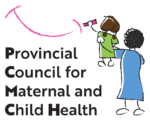PCMCH’s EDI journey is an evolving one that builds upon work already done. This webpage is but one way for us to be accountable to our commitments and be transparent with our stakeholders about our efforts. This page will be updated when new activities take place and as new resources are developed.
Here are some of the activities we’re currently focused on:
- Convening the Inclusivity, Diversity, Equity and Access (IDEA) Advisory Group to identify actions and priorities to advance culturally safe and appropriate, accessible and equitable health care services across the perinatal and child health system. Their input has provided PCMCH with important considerations for our EDI work.
- Making sure Ontario’s diversity is reflected in PCMCH’s staff, Governing Council and committee membership, and that each are committed to addressing inequities and racism through:
- Ensuring our Committees, Expert Panels and Work Groups include members who are Black, Indigenous and People of Colour (BIPOC), who are from other equity-seeking groups, and who have lived experience
- Including questions related to diversity and equity in the recruitment process for staff and Council/Committee members, and giving weighted consideration to candidates who have experience with equity and diversity
- Developing an approach to recognizing stakeholders’ participation, for example, providing honorariums for some activities, and other forms of recognition
- Establishing approach(es) for making sure diverse perspectives are heard and incorporated from patients and families with lived experience; Indigenous healthcare organizations, providers, and Elders; and healthcare organizations and providers working with BIPOC, marginalized and racialized communities, and other equity-seeking groups.
- Making sure a health equity lens is embedded in all of the work PCMCH is doing by:
- Developing a PCMCH-specific health equity impact assessment (HEIA) tool that looks at whether there are any unintended impacts for disadvantaged populations when developing recommendations and guidelines; building this in from the beginning helps make sure that new inequities don’t happen because of changes and, instead, that changes lead to better health outcomes for all
- Making sure that all PCMCH communications, whether they be reports, recommendations or emails, use inclusive language; doing so conveys a spirit of inclusion and shows respect, dignity and sensitivity to everyone
- Creating a safe forum, held quarterly, in which staff can talk, learn and reflect about the impact of racism, have uncomfortable conversations about EDI, and identify ways to move forward with PCMCH’s EDI activities
- Advancing health equity for people with disabilities by collaborating with a team of experts at the University of Toronto to develop evidence-based resources to support healthy pregnancies, birthing experiences and postpartum outcomes for people with disabilities. These resources, intended for people with disabilities, healthcare providers and healthcare administrators, were informed by individuals with lived experience, health and social service providers, and policy makers.
- Advancing Indigenous health equity through increasing knowledge and action related to Canada’s colonial history and the impact this has on current systemic realties through:
- Looking at how relevant components of the Truth and Reconciliation Commission’s Calls to Action can be advanced/incorporated into PCMCH’s work
- Showing our gratitude and respect by starting each meeting with a land acknowledgment in which PCMCH’s commitment to reconciliation and collaboration, along with an acknowledgement about the harms and mistakes of the past, is clearly stated
- Providing Indigenous cultural safety training for all PCMCH Governing Council and staff members
